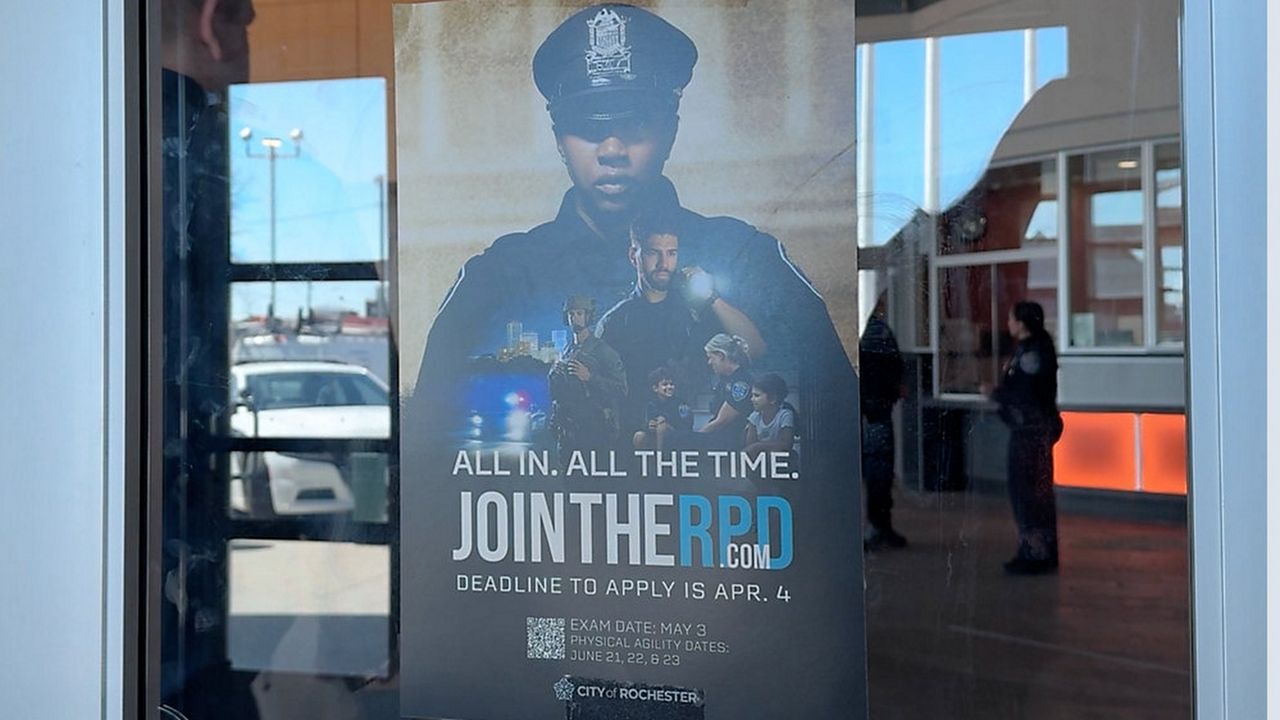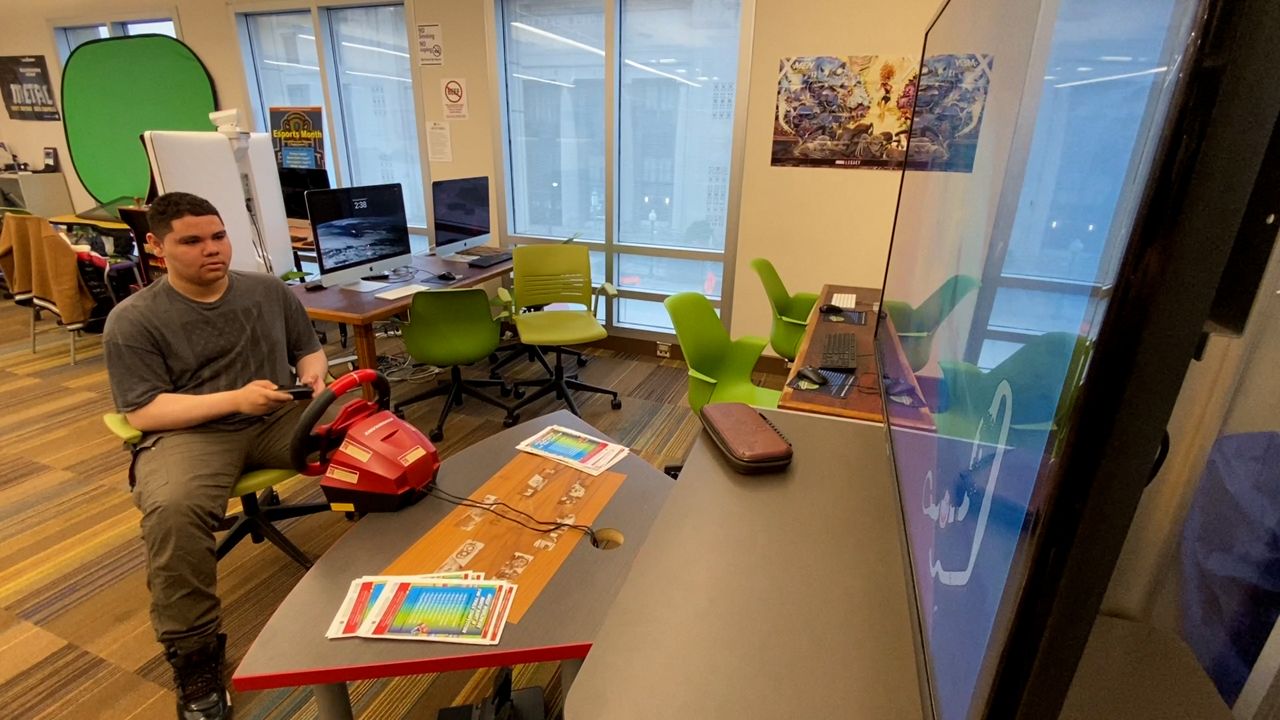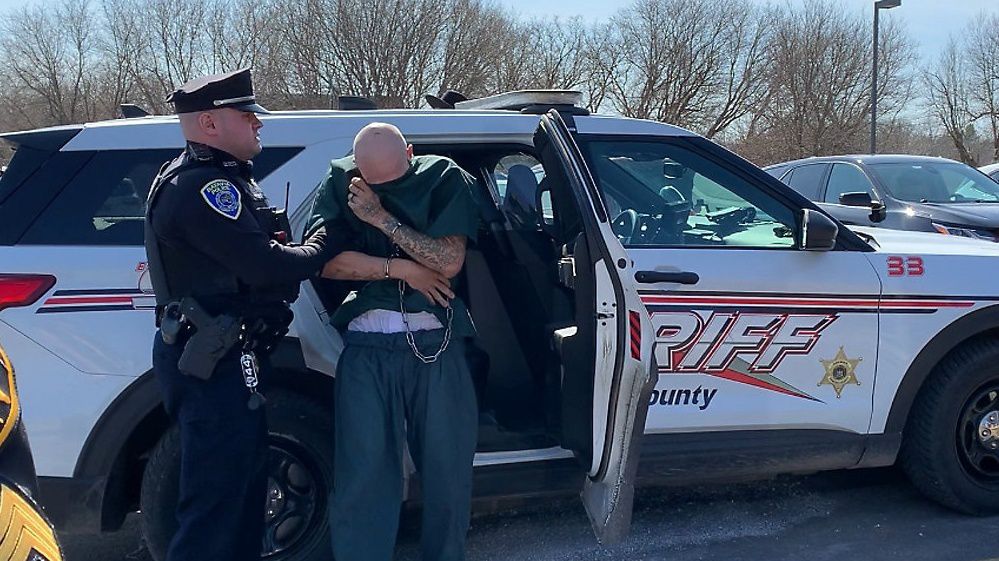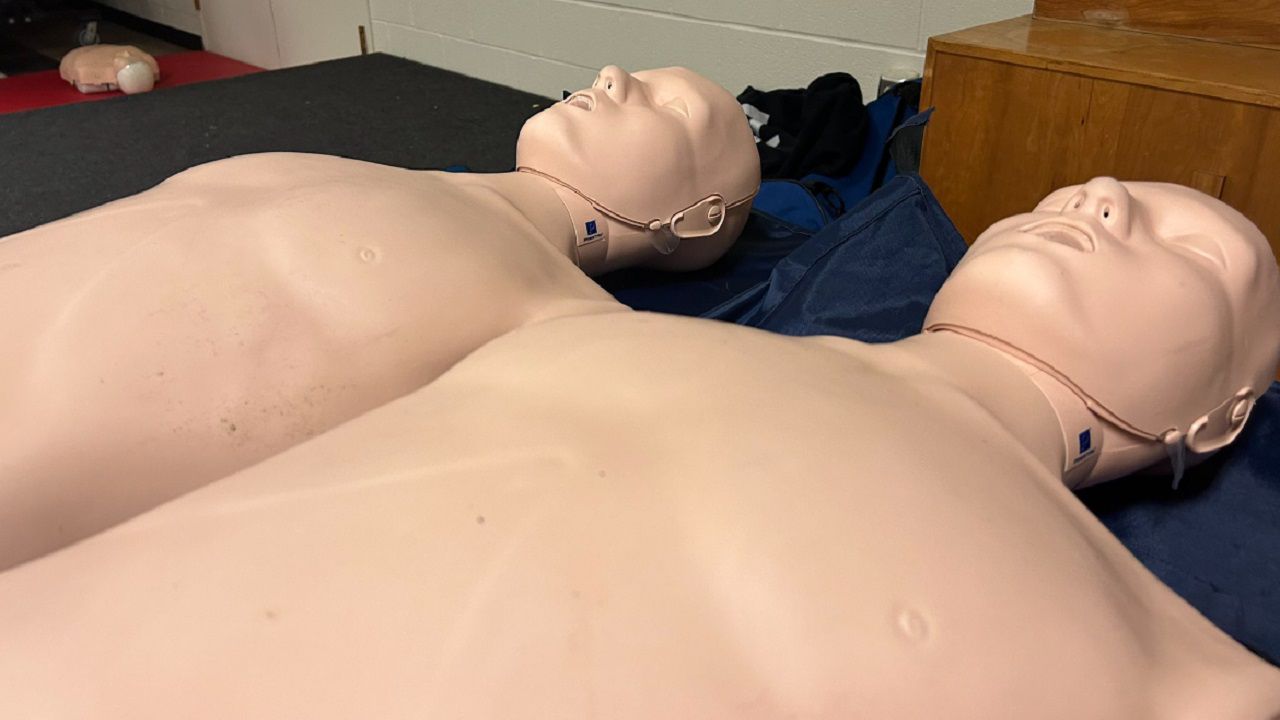HAMLIN, N.Y. — As state budget negations resume Tuesday, advocates are hoping for more funding for the state Early Intervention Program. It provides services like physical and occupational therapy and speech pathology to children up to the age of 3 who need a little extra support.
“They call what he has hyperlexia and hyper numeracy, so it's like a 2e which is kind of a disability with an ability,” Kailey Yeager said.
Yeager says her three-and-a-half-year-old Matthew started showing delays when he was about 2 years old, but showed many other strengths.
“He just kind of kept regressing in certain areas but progressing academically. So that was kind of a red flag,” she explained. “He was only singing words at 2 years old, so he couldn't really talk to us. He would do [things] like, ‘We Will Rock You’ or sing a song. But he wasn't using meaningful speech yet, which is kind of what started to concern us. And then the lack of eye contact.”
They waited months for an appointment that got him the diagnosis her son needed to qualify for extra help. In the meantime, he learned how to understand fractions, tell time and even read some words, but on his own time. Now, the time is up for him to receive Early Intervention services. Yeager says her son has been waiting to get into a classroom for in-person support in a group setting for nearly a year.
“We were hoping and praying for that classroom setting this year because he could get every service in the classroom," Yeager said. "But because of that, it makes it 10 times harder because you can't get back to work sessions. And we do have another child. So, she's coming home from school and I have to be there for her. We can't run out three times a day for different services. So it is very demanding."
The Children’s Agenda is leading a campaign called Kids Can’t Wait, advocating for more funding for the Early Intervention Program to increase the number of providers for families seeking those additional resources. The group is made up of thousands of families, advocates, experts, Early Intervention providers and concerned community members interested in looking for a solution.
“Early Intervention is federally mandated in the federal ID law," said Brigit Hurley, chief program officer for the Children’s Agenda. "And right now, despite the fact that it is mandated, about half of families who are eligible actually receive services. Services that we're talking about are speech, OT, PT delivered, often in a home setting with an infant and a toddler. When babies are developing, they develop a million neural connections per second between the ages of zero and 3. This is a time in life when interventions like OT and PT and speech can make a really big difference. So the fact that these infants and toddlers are not getting these services is a real crisis for those children, for those families, but also for our state.”
Hurley says, according to the Department of Health, that New York ranks 50 out of all 50 states in delivering early intervention in a timely manner. That’s mainly due to a lack of providers.
“The reason why children are not getting services and particularly not getting services on time, they need them within 30 days of diagnosis. That is because there are not enough providers. These, again, are professionals who could work in many other settings [and] are choosing to work with young children, but, in reality, they can make a lot more money if they work for a school system or a hospital setting. And New York state is responsible for setting their payment rates,” Hurley said. “Therapists and professionals who are doing this work are actually getting paid less per hour than they were when they started 30 years ago. That's why children and families are waiting.”
Hurley says it can only get better from here. The State Department of Health says the 2025 budget included a 5% rate increase for in-person E.I. services and a 4% rate modifier to increase rates for in-person services in rural and underserved areas of the state, like where the Yeagers live.
“This has been a huge thing for a lot of different kids," Yeager said. "And because we are in the city that we're in, there's not a lot of providers. So, they're not going to come out to the house like a lot of other areas will."
In a statement, it says, “The intent of the modifier is to incentivize providers to deliver services where families are experiencing delays. The Department does not keep or require a waitlist for Early Intervention services. Unfortunately, there is a nationwide shortage of critical service providers like speech language pathologists, occupational therapists, physical therapists and teachers of special instruction.”
While they await approval from the Center for Medicare and Medicaid Services, the department says it’s focused on recruiting new providers through career fairs and professional conferences, promotional campaigns, New York State Department of Labor outreaches and informational videos on its website.
“The vision that we have is that every infant, toddler and preschooler has the services and therapies that they need to grow their full potential. That's our North Star. If there's a provider shortage. And that means that kids are not able to get services because providers are paid so little that they're leaving the field, then we're going to focus on that, and that's what we have been doing,” Hurley explained. “We are just asking legislators and the governor to prioritize these infants and toddlers with disabilities and do not let another year go by without some real investments in this program so the kids can develop.”
Yeager is hoping everything works out for her toddler so that he can receive at-home services throughout the summer months throughout the U-PK program so that he’s best prepared to enter a classroom for the first time at age four in the fall.
“I'd really like for them to follow up and do that with him just so that we could make sure that we're maximizing the time from 4 to 5 just because it's just the brain is so rapidly developing that it would only make sense to try to maximize during this time, but also make sure that he's feeling comfortable and regulated enough to do that,” Yeager explained.
She emphasizes that her youngest has taught her so much, and being the mother to a child with autism has been a blessing. Yeager knows she’s not alone in this battle, as the Kids Can’t Wait campaign shares many other parent testimonials from across the state.
“I do want to make life easier for him and help him regulate better, because I know that he can be the best version of himself if we give him the right skills,” she says.











